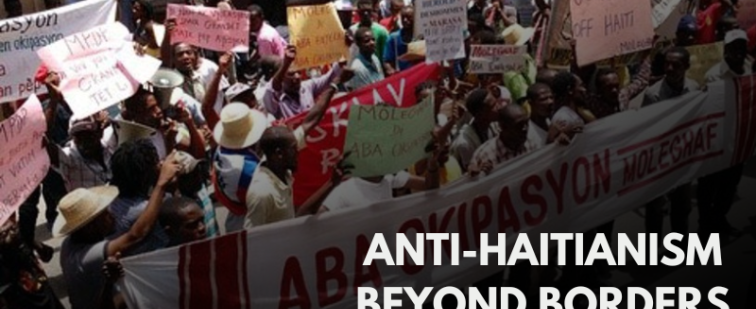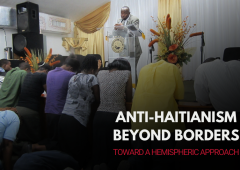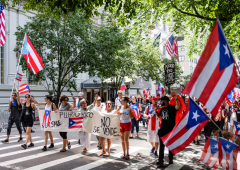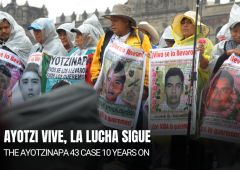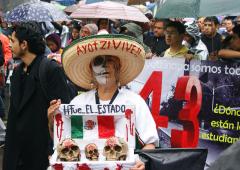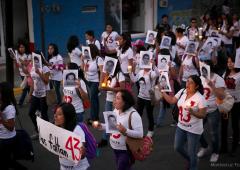Home
From the United States to the Dominican Republic to the Bahamas, the collective scapegoating and mass deportation of Haitians for political gain lays bare a particular kind of anti-Blackness.
La Ley del Estatus de Puerto Rico presenta un referéndum sobre el futuro político del archipiélago, pero las imposiciones de E.E.U.U. no permitirán su liberación total. Una campaña permitiría nuevas posibilidades autónomas.
By centering Indigenous women’s lived experiences, Maclean’s book presents a gendered analysis of the pluri-economy under MAS leadership in Bolivia.
Long associated with the Andean region, coca cultivation is expanding rapidly in Central America. As eradication efforts intensify, local communities may be in the crossfire.
A decade after 43 students were forcibly disappeared from Iguala, Mexico, demands to uncover the truth of the Ayotzinapa case persist.
As anti-Haitianism surges in the lead-up to the U.S. presidential election, confronting the rise in xenophobia and hate requires a hemispheric approach to U.S. imperialism.
The recent book by Jaime Pensado explores how the social, cultural, and political engagement of Mexican Catholics shaped the country's long Sixties.
On the 10th anniversary of the disappearance of 43 students in Iguala, Mexico, this collection of NACLA coverage contextualizes the event—and the government’s ongoing role in obscuring the truth.
Last month, nine years and 11 months after their children were disappeared, the parents of the 43 students ended their relationship with Mexico’s current government. In the absence of justice, the state’s mask has fallen.
Ten years after the Ayotzinapa case blew the lid off Mexico’s ongoing disappearance crisis, anthropologist Claudio Lomnitz unpacks the much bigger picture surrounding the 43 students.

